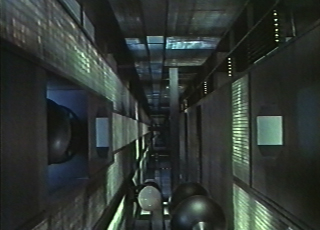-
 The forum software that supports hummy.tv has been upgraded to XenForo 2.3!
The forum software that supports hummy.tv has been upgraded to XenForo 2.3!
Please bear with us as we continue to tweak things, and feel free to post any questions, issues or suggestions in the upgrade thread.
You are using an out of date browser. It may not display this or other websites correctly.
You should upgrade or use an alternative browser.
You should upgrade or use an alternative browser.
Interesting Items...
- Thread starter Black Hole
- Start date
Black Hole
May contain traces of nut
Oh, shiny! I didn't know about that.
DittoOh, shiny! I didn't know about that.

gomezz
Well-Known Member
Best way is to couch your response to make to clear to whom your are replying and which of their various points you are answering. Empty quotes boxes can only cause confusion. If you want to be down with the kids just use the Twitter convention eg Black Hole I am shocked you didn't know that. 
Edit: So "@ Black Hole" becomes mangled by this forum software. Now *I* did not know that.

Edit: So "@ Black Hole" becomes mangled by this forum software. Now *I* did not know that.
Black Hole
May contain traces of nut
It's not mangled as such; it is designed to trigger an alert to the relevant person that they have been mentioned in a post. Of course, putting @Black Hole in [plain]...[/plain] tags achieves the effect of using the Twitter convention without triggering the standard forum response.
Here's a curious thing: when I created the "empty" quote (which is normally bounced by the post editor), I used a dot formatted white so that the quote box looked empty. The curiosity is that the quote is displayed on a tinted background, but the dot still does not show up.
Here's a curious thing: when I created the "empty" quote (which is normally bounced by the post editor), I used a dot formatted white so that the quote box looked empty. The curiosity is that the quote is displayed on a tinted background, but the dot still does not show up.
D
Deleted member 473
I can see the white dot on this phone.Here's a curious thing: when I created the "empty" quote (which is normally bounced by the post editor), I used a dot formatted white so that the quote box looked empty. The curiosity is that the quote is displayed on a tinted background, but the dot still does not show up.
Last edited by a moderator:
D
Deleted member 473
Interesting item, but 100 times more powerful?
Camera takes a perfect shot in the dark
Oliver Moody, Science Correspondent
February 2 2017, 12:01am, The Times
The world’s first “perfect” digital camera, capable of recording each individual particle of light, is being developed by American researchers.
The device, which will be able to capture detailed images at night-time and produce photographs far more detailed than the human eye can register, is expected to be available to scientists in five years and to go on sale to the general public in a decade.
It will be about a hundred times more powerful than the camera in the latest iPhone, and dozens of times sharper than the best commercial models available, according to Eric Fossum, professor of engineering at Dartmouth College, who is leading the work.
Light is made up of units of energy called photons. Today’s digital cameras have limited scope because they miss more than half of these particles.
Professor Fossum invented the technology that powers the process, now in every smartphone on the planet, in 1993. His complementary metal-oxide-semiconductor (CMOS) chips are electric chessboards made up of millions of microscopic rectangles, known as picture elements, or pixels. Each pixel registers photons and converts them into an electrical signal, which becomes the image. The problem is that the light-sensitive part of a pixel, the photodiode, is so thin that up to 70 per cent of the photons simply sail through without a trace.
Professor Fossum is now working on a CMOS chip with a billion pixels that can each detect single photons at room temperature, pushing the digital camera about as far as the laws of physics will permit.
Speaking as he was announced as one of four winners of the 2017 Queen Elizabeth prize for engineering, his profession’s answer to the Nobel prize, Professor Fossum said the device could come closer to reality than the human eye and pick up minute scraps of light in the dark. Although the camera will be used mainly by scientists such as astronomers at first, he predicted that the technology would soon make it easier to take pictures in poorly lit places.


Camera takes a perfect shot in the dark
Oliver Moody, Science Correspondent
February 2 2017, 12:01am, The Times
The world’s first “perfect” digital camera, capable of recording each individual particle of light, is being developed by American researchers.
The device, which will be able to capture detailed images at night-time and produce photographs far more detailed than the human eye can register, is expected to be available to scientists in five years and to go on sale to the general public in a decade.
It will be about a hundred times more powerful than the camera in the latest iPhone, and dozens of times sharper than the best commercial models available, according to Eric Fossum, professor of engineering at Dartmouth College, who is leading the work.
Light is made up of units of energy called photons. Today’s digital cameras have limited scope because they miss more than half of these particles.
Professor Fossum invented the technology that powers the process, now in every smartphone on the planet, in 1993. His complementary metal-oxide-semiconductor (CMOS) chips are electric chessboards made up of millions of microscopic rectangles, known as picture elements, or pixels. Each pixel registers photons and converts them into an electrical signal, which becomes the image. The problem is that the light-sensitive part of a pixel, the photodiode, is so thin that up to 70 per cent of the photons simply sail through without a trace.
Professor Fossum is now working on a CMOS chip with a billion pixels that can each detect single photons at room temperature, pushing the digital camera about as far as the laws of physics will permit.
Speaking as he was announced as one of four winners of the 2017 Queen Elizabeth prize for engineering, his profession’s answer to the Nobel prize, Professor Fossum said the device could come closer to reality than the human eye and pick up minute scraps of light in the dark. Although the camera will be used mainly by scientists such as astronomers at first, he predicted that the technology would soon make it easier to take pictures in poorly lit places.

Last edited by a moderator:
D
Deleted member 473
Nice!Easier way - you can highlight the bit you want to quote then click on the reply button that pops up.
Black Hole
May contain traces of nut
Oh yes! I hadn't looked hard for it, but zooming my PC screen shows it up. Try this:I can see the white dot on this phone.
I can see the white dot on this phone.
Black Hole
May contain traces of nut
I guess the part where Fossum explains what he means by that didn't make the press.Interesting item, but 100 times more powerful?
D
Deleted member 473
I like the idea of catching every photon, too. First, I don't think you can count them like that, but do any of them try to tunnel?I guess the part where Fossum explains what he means by that didn't make the press.
Ezra Pound
Well-Known Member
Black Hole
May contain traces of nut
LOL!
Yes, I realised there was a hint of ghosting even after I set the colour of the font to the spit colour of the background, I guess due to the anti-aliasing in the font rendering (no, I now realise it is due to a graduated background). I had been lazy by just quoting the text as it was rather than replacing it with the least possible number of pixels that is not zero (maybe a non-printing ASCII code would do?), but had I done so I can't see much hope of spotting it.
Without removing the text, even camouflaged against the background it is still selectable.
Yes, I realised there was a hint of ghosting even after I set the colour of the font to the spit colour of the background, I guess due to the anti-aliasing in the font rendering (no, I now realise it is due to a graduated background). I had been lazy by just quoting the text as it was rather than replacing it with the least possible number of pixels that is not zero (maybe a non-printing ASCII code would do?), but had I done so I can't see much hope of spotting it.
Without removing the text, even camouflaged against the background it is still selectable.
Black Hole
May contain traces of nut
Black Hole
May contain traces of nut
Newbies' Guide to the Forum (click), section Tagging.So "@ Black Hole" becomes mangled by this forum software. Now *I* did not know that.
D
Deleted member 473
Better stop eating all the pies. And stars. And galaxies!
D
Deleted member 473
Some archaeologist is planning to enrol loads of us to do her research for her. I quite fancy the idea.
https://www.globalxplorer.org
http://www.thetimes.co.uk/edition/n...st-civilisations-from-your-armchair-xw0shn32r
https://www.wired.com/2016/02/sarah-parcak/
Sarah Parcak: Archaeology from space
http://go.ted.com/fCQ1yw
https://www.globalxplorer.org
http://www.thetimes.co.uk/edition/n...st-civilisations-from-your-armchair-xw0shn32r
https://www.wired.com/2016/02/sarah-parcak/
Sarah Parcak: Archaeology from space
http://go.ted.com/fCQ1yw
Black Hole
May contain traces of nut
A similar approach has been used for all manner of things, particularly for image and pattern recognition (where mere humans remain more adept than computers). Scientists make the data available in an accessible (to joe public) form, then somehow the curious and interested around the world contribute thousands of hours of spare time voluntarily. There was something on the radio about it only the other day about some breakthrough or other, querying whether all the volunteer data processors would be named as joint authors in the paper.
The custom PC enthusiast set run protein folding algorithms in their spare clock cycles, competing for league table status of the greatest number of tests run (or something like that).
The custom PC enthusiast set run protein folding algorithms in their spare clock cycles, competing for league table status of the greatest number of tests run (or something like that).
D
Deleted member 473
I did the protein folding thingy for a while, but my then desktop PC started acting like the Krell computer when Dr Morbius was having nightmares.


I have tried various astronomical variants of the above, including, you guessed it, the search for black holes. Or should I be saying Holes of Colour these days?
https://www.galaxyzoo.org/#/

I have tried various astronomical variants of the above, including, you guessed it, the search for black holes. Or should I be saying Holes of Colour these days?
https://www.galaxyzoo.org/#/
Last edited by a moderator:
